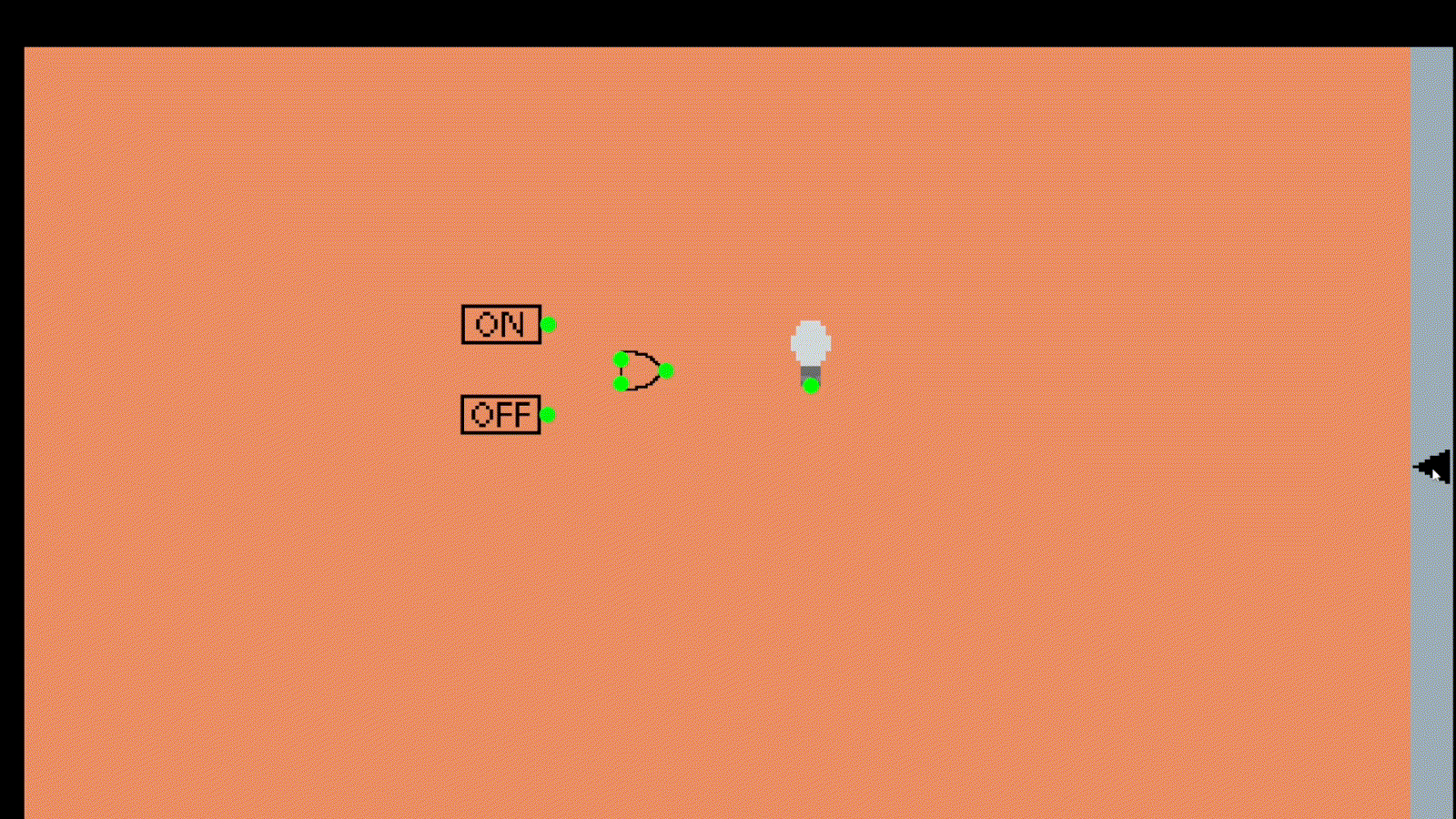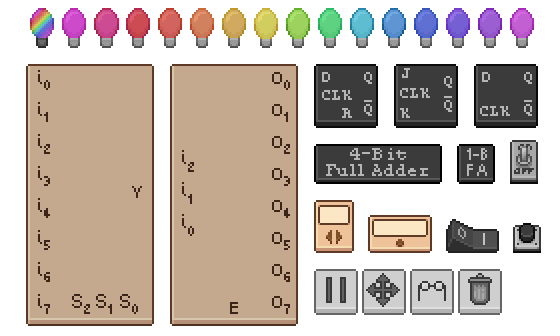Hardware Simulator Release Devlog
Hardware Simulator started as Z’s personal side project. He has always been interested in electronics, but our cats and small apartment have kept him from regularly using his Arduino kit and growing a collection of components for hobby builds. He took a hardware class that piqued his interest in logic circuits, but at that time the lab was not offered in-person. His desire to build circuits remained and he decided to simulate the experience through programming. During some down time, he created basic sprites in Aseprite and programmed them into functional components in Unity.

I was impressed with the gameplay and liked the simplicity of the sprites. I was working on some assets for our other project, a top-down action game, but wanted a small change of pace, so I recreated the components with some color, highlights, and simple animations to reflect user interaction.

Once we saw how nicely the sprites were implemented, we focused on other components and mechanics we could add to enhance the experience. We had a lot of momentum, so we decided to focus solely on Hardware Simulator with the intention to release it for others to play.

We casually worked on the game for about two weeks or so and, at that time, the core gameplay was finished and the sprites for all of the components we wanted to include in this version of the game were complete. We set a target release date for January 26, which, at the time, gave us four days to finalize the game for public viewing. The decision to share the game with the world created a necessity to add features that the average player might expect, like gameplay instructions, the ability to move their components around the board, toggle the connections on and off, and navigate intuitive UI. It also required polish, which included tedious processes such as extensive play testing for bugs, audio implementation, and minor adjustments that affect the overall look and feel of the game.
Since setting a target release date, a lot of our time was spent creating and debugging the pause menu, "move" mode, connection toggle, and board clearing functions. These implementations alone were not difficult, but the interconnection among the systems caused us to spend more time on them than anticipated. The solutions to these problems were scrutinized with thorough play tests that aimed to "break" the game. I think we could have gotten away with not addressing some of those bugs because the likelihood of others replicating those issues seemed low, but that is not what we do at LoneZ. We produce quality products that we are proud to call ours, and, Z , being the excellent programmer and problem solver that he is, took on all of those challenges and resolved every issue we encountered.
Once those bugs were fixed, all that was left was audio implementation. We don't currently make our own sound effects or music, but that is something we eventually want to do. For this project though, the biggest hurdle was finding candidate audio files in the Unity asset store. Once those were selected, Z programmed them into the game with relative ease.
. . .
As with Zerg Rush, we are impressed with the amount of focus and work we are able to accomplish in a short amount of time. Though this process was not as stressful as making a game in one week in the middle of a semester, the release of this game presented unique issues we had to overcome. As expected, we learned a lot through the process of making this game. The experience gained from implementing new systems and packaging another game for release contributes to rounding out our overall game development skills. We have larger scale games that we want to release in the future and creating these smaller, diverse games gives us the opportunity to step outside our comfort zone and grow.
There are more features we want to add to the game (as seen on the "ideas" list in the game), but at this time we don't have any immediate plans to implement them. We are proud of this game in its current state and excited that others can experience it with us.
Thank you for your support.
Until next time,
Mantis
Hardware Simulator
Create your own circuits in this sandbox electronics simulator.
| Status | Released |
| Author | LoneZGames |
| Genre | Simulation, Educational |
| Tags | 2D, Casual, Crafting, Creative, Mouse only, Pixel Art, Relaxing, Sandbox, Unity |

Leave a comment
Log in with itch.io to leave a comment.